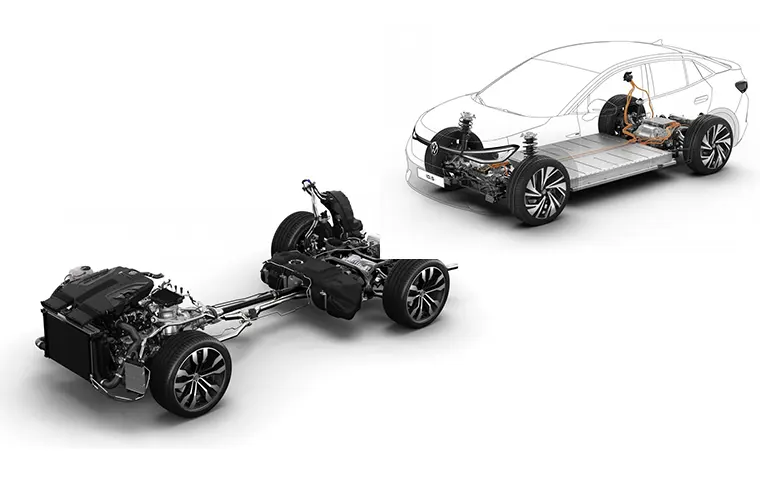The fleet industry has seen the rising conversation surrounding electric vehicles. You may have seen the charging stations on your routes, particularly if you work within major cities. There’s no denying that electric vehicles are the way of the future for many businesses. One question that comes to mind for many fleet owners is: are EVs (electronic vehicles) or ICE (internal combustion engine) vehicles more energy efficient? The truth is that ICE vehicles are inefficient, especially when compared to EVs. In this article, we’ll explore why that is.
How Much Energy Do Gas-Powered Vehicles Lose?
A vehicle’s efficiency is measured by how much energy it loses from its fuel. ICE vehicles, of course, start with 100% of their fuel. You may be surprised that 75-84% of that energy is lost. Let’s break down exactly where that energy goes.
- 68% to 72% is lost in the engine
- 4% to 6% is parasitic losses
- 3% to 5% is drivetrain losses
- 0% to 2% is auxiliary electricity use
How Much Energy Do Electric Vehicles Lose?
Of course, electric vehicles also start with 100% of their fuel. However, this fuel comes as electricity that powers the drivetrain. They do not need to convert the energy from oil into electricity, making the process more efficient. Still, electric vehicles do lose about 31-35% of their energy. Luckily, 22% of that energy can be restored through regenerative braking. How do EVs lose energy in the first place?
- 10% loss from charging
- 18% drivetrain losses
- 3% powertrain cooling and steering
- 0% to 4% auxiliary electricity use
Electric Vehicle FAQ
Of course, fleets have many questions about electric vehicles, and we’re here to answer. Here are just some of the most common questions about electric vehicles.
What does fleet electrification mean?
Fleet electrification is how a fleet transitions its vehicles from ICE to EVs, often aiming to run a 100% electric fleet.
What are the types of electric vehicles?
There are four types of electric vehicles:
- Battery Electric Vehicles (BEVs)
- Hybrid Electric Vehicles (HEVs)
- Plug-in Hybrid Electric Vehicles (PHEV)
- Fuel Cell Electric Vehicles (FCEV)
How long does it take to charge an electric car?
It depends on the type of charger you’re using. A Level 1 charger is the slowest and can take 40-50 hours to charge a BEV and 5-6 hours to charge a PHEV. However, a Direct Current Fast Charger can charge a BEV to 80% in just 20 minutes to 1 hour.
Learn More from Azuga
Azuga is a leading expert in the fleet industry. Our fleet management solution supports you in all aspects of fleet management. Our blog seeks to keep you updated on new technology and developments that may affect you as a fleet manager, so you’re always three steps ahead of the game. Fleet electrification is just one of the many subjects we’re keeping our eyes on for you. Check out our blog articles on the subject to learn more.
- The Different Types of Electric Vehicles for Your Fleet – Feb. 8th, 2023
- Considering an Electric Vehicle Fleet? 5 Things to Know – May 7th, 2020
- Fleet Electrification Strategy Tips – Aug. 17th, 2022








